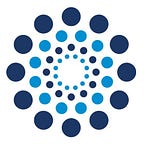Hacking Healthcare: Genomic Screening and the Future of Personalized Wellness
A conversation with John Faith of b.well Health Insurance
Despite all of the noise in the healthtech world, we’re at a crossroads. Software is eating the world, as Marc Andreessen noted years ago, but healthcare is still lagging behind: expensive legacy systems are costly to maintain, the regulatory environment is difficult to navigate, and, as we all know, people don’t always do what’s best for them.
At BaseHealth, we believe that the developers and engineers behind today’s most promising technology will forge the road ahead, invent new solutions to legacy problems, improve the overall healthcare experience, and, ultimately, create a healthier future.
That’s why we’ve started this series — to recognize and celebrate the people whose behind-the-scenes innovations are driving healthcare toward a brighter future.
Our fifth interview is with John Faith, CTO of b.well Health Insurance. After graduating with degrees in Geography and Art History from Colgate University, John dove head first into a digitally focused career that has exposed him to a diverse range of business and revenue models including cognitive computing, travel, retail, international expansion, social networking, mobile technologies and media delivery. Before joining b.well as CTO, John led international and mobile expansion efforts as an executive at My Space. He helped grow RetailMeNot into a $200M+ business in revenue and IPO, and he served as CTO at WayBlazer, a travel startup powered by IBM Watson’s cognitive-computing initiative. John’s specialties include Technology and Product Development, Mobile Strategy, General Management, Public Speaking, Communications, and Business Development. You can follow him on Twitter at @surfingfaith.
What are you working on right now and how will it impact healthcare and/or the developer world? What are you most proud of in your work?
I’m working with a great team at b.well Health Insurance to create a new type of health-insurance company, one that is focused on transparency, technology, and re-establishing relationships between the member, payer, and provider. Eighty-six percent of our healthcare spend is currently going towards preventable chronic conditions, yet the current incumbents in the health-insurance industry treat those illnesses only once someone falls ill. We believe that we can help rectify this problem in the US, so we created a company that prioritizes the well being of its members through technology adoption and utilization.
How did you get your start in the industry? When did you know you wanted to be a developer? In healthcare?
This is my first job in the healthcare industry. My career has been focused on technology and product development across multiple verticals for the past fifteen years. I first new I wanted to become a developer when working for a GIS (Geographic Information Systems) company in Boston in the late 1990s. We were working with municipalities across Massachusetts that were interested in building websites for their respective towns. I saw this as an opportunity to learn client/server technology and taught myself ASP, HTML, and SQL as quickly as I could.
What is your preferred development stack? Tell me about it. How does it different from other more traditional non-healthcare stacks?
Traditional health-insurance stacks are still in the mainframe world and have grown by multiple acquisitions over many years. This creates a large amount of technical debt and makes it challenging for incumbents to innovate and move quickly.
At b.well our stack uses modern technology frameworks including Angular, Python, Django, MySQL, MongoDB, Graph Databases, and Amazon Web Services. We have architected our data layer to allow for rapid iteration and algorithm deployment. Our user experience is built on a robust set of APIs which we can use to deploy web and mobile platforms.
How have you managed to make your chosen stack — which is quite modern — compliant with traditional healthcare environments?
Security and compliance is always a big concern in the healthcare industry. At b.well, we are in the process of partnering with ClearData to ensure the highest level of compliance in our AWS environment. In addition to this, we are encrypting all ePHI data within our stack, whether it be at rest or in transfer.
Walk us through the most promising use case you see for genomics integration in healthcare systems or applications. How will responsible uses of the genome revolutionize other fields (and which ones)?
At b.well we will offer genomic screening to our members and test for 30 preventable chronic diseases. We plan to use this information to inform users well before the onset of one of these medically and financially costly conditions and to create personalized wellness paths for them to utilize in their everyday health. We also are on the path to share this information through EMR systems with primary-care providers so that they are equipped with as much information about our members’ health as possible.
Certainly healthcare has been less eager to cross-pollinate functionality than other industries, often for good reason. How will APIs eventually transform the healthcare industry?
Coming from a career outside of healthcare, I was caught off guard a bity by how antiquated some systems are in the industry. APIs have become an everyday part of a technology approach when building a client/server stack. With the rapid growth of startups focused on modernizing our industry through technology, APIs are essential for partner-data transmission, ease of interface, and proliferation of functionality.
When you’re not coding, what are you doing, both at work and outside it?
I have been heading to the Bay Area and New York raising b.well’s Series A financing round. You can follow our story at http://www.icanbwell.com.
At home, I am a husband and father of two young children. Like most Austinites, I enjoy rooting for the Horns, BBQing, and being with friends and family on the weekends.
Want to be featured next? Leave a comment about the work you’re doing in the comments below or gives us a shoutout @BaseHealth. We can’t wait to hear from you!
